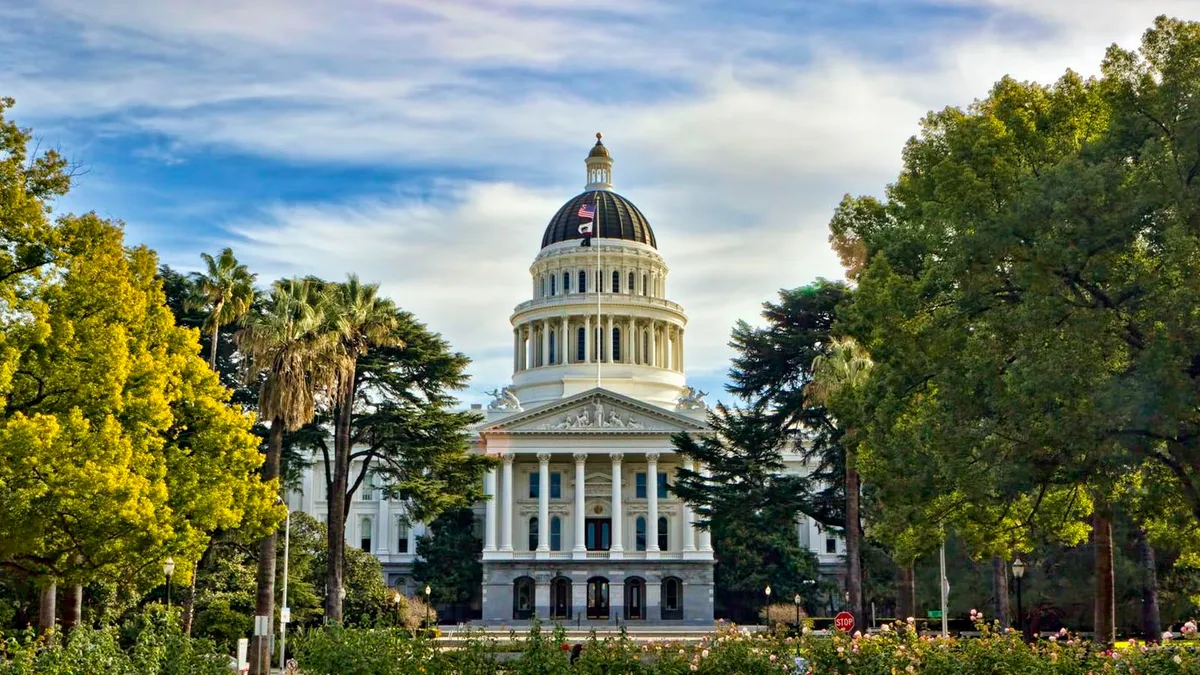Dive Brief:
- The California Department of Resources Recycling and Recovery (CalRecycle) recently awarded $9 million to three new projects from the state's Climate Investments program. The first $3 million is for a Revolution Plastics project in Kern County, estimated to create 120 jobs. The funding will help increase collection capacity for LDPE agricultural film and tubing, and build a facility to reprocess the material for new can liners, mulch film and plastic lumber.
- SiONEER Stockton, located in San Joaquin County, will receive $3 million to build a facility that processes glass into an aggregate for concrete manufacturing. This project is estimated to create 14 jobs.
- Another $3 million will be given to rPlanet Earth Los Angeles, in L.A. County, for a facility that can reprocess PET thermoforms into new food-grade packaging. This project will create an estimated 100 jobs.
Dive Insight:
The California Climate Investments funding comes from the state's cap-and-trade program to support a broad range of environmental projects. This is part of a 2006 law, AB 32, that set a goal of reducing emissions to 1990 levels by 2020. So far, an estimated $3.4 billion has been dispersed to state agencies to reduce greenhouse gas emissions. CalRecycle has received $125 million of this funding to date for multiple projects focused on recycling, organics processing and food recovery.
Interest in the program appears high, as the agency reported 13 applications totaling $30.6 million for this latest round of funding. Each of the winning projects represents a growing area of interest within the industry. Revolution Plastics has been expanding its agricultural film collection work in multiple states. With challenging markets for glass in multiple parts of the country, many people are interested in ways to use its as construction aggregate similar to what SiONEER Stockton is doing. Increasing opportunities to turn PET into food-grade packaging is also a priority.
All of this work may also help California move toward a statewide recycling goal of 75% by 2020. While CalRecycle's latest annual report showed that may be very difficult to achieve, and officials have since recognized that China's import policies may make it even harder, the agency often points to Climate Investment funding as a way to get there. Regardless of whether the 2020 goal is attainable, any expansion of domestic processing capacity for unique material streams is seen as a positive by many in the industry.














